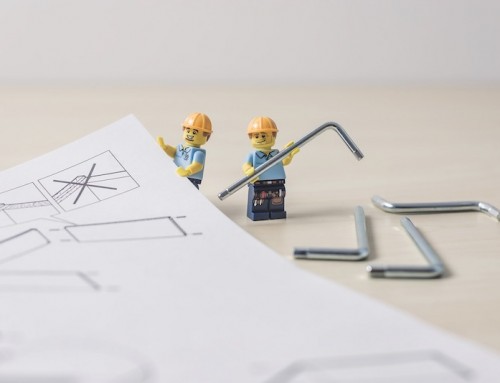Before construction on a renovation project starts, most owners have to consider whether they will stay in an untouched part of their home during the renovation or whether they will move out. Although the answer will depend on the size of your renovation, if you are doing more than just a remodel of your second bathroom, my advice is to MOVE OUT – here’s why:
- SPACE – builders and trades need space for their materials and equipment and room to move to do their work efficiently, so the space left for you to live will most likely be smaller than you think.
- CLEANING – building is a messy business. During the renovation, you will find dust in places you didn’t know you had! Even though your builder will do as much as they can to prevent it, they cannot secure you an air-tight bubble. Wiping down every surface before you eat, sleep, play, sit etc will get very tiring.
- COST – unless you have relatives that you can stay with (and still preserve your sanity!) during your renovation, it will cost money to rent a place to live. But what many people don’t understand is the potential for extra cost if you stay. Some builders may charge an additional fee, to cover the cost of more regular clean-ups and more frequent “informal” meetings with the owners. It is likely that there will also be additional costs in having to expedite work to ensure that services to the house (such as water and power) are not interrupted.
- TIME – be aware of how long your renovation will take. Not just the renovation as a whole, but when will the kitchen and/or bathroom be demolished and how long will it be before one – or preferably both – are reinstated. Can you really live on microwave dinners and take-out for that long? Showering at the gym is ok for a short time, but…
- CHILDREN – otherwise known as “the naturally curious”. Children are inquisitive by nature, so will most likely be keen to explore and watch. But a building site can be a very dangerous place. Most builders will not allow even supervised children on site, whether they are living there or not, simply because of the safety risks. If you have younger children, remember that babies typically need sleep during the day. Unless they are able to sleep with a power saw and nail gun going off, I don’t hold out much hope for success there.
- PETS – even if you are able to keep them out of the work area and secured on the site (a challenge in itself), pets can be greatly distressed by the noise and constant activity around them.
- DISTRACTION – when living in such close proximity to the builders and trades while they go about their work on your home, there is a great temptation to chat with them about the project and what they are doing – whenever the moment strikes. Doing so in an unstructured, irregular way takes time out of their working day and so will delay the work they are doing project.
- COMMUNICATION – building projects must maintain a distinct line of communication between the owner and/or architect and the builder. Otherwise a casual chat with a tradesman can lead to unexpected additional costs to you down the track. Let’s look at an example: checking out progress on site, you happen across the electrician installing light fittings in your kitchen. You discuss the lighting layout with him, and tell him that you’ve been thinking that you would like an extra downlight over your island bench. He tells you that he can run another one through – no worries. Later, you receive a variation invoice from your builder for not only the additional light fitting, but also the extra cabling, and an upgrade of the transformer to take the extra fitting.
- GOING WHEN YOU’RE STAYING – some parts of your project may require you to leave the site regardless of whether you have opted to stay for the rest of the project, for safety and/or comfort reasons. For example, if your new timber floors are to have a polyurethane finish, you will need to leave the site for at least 24 hours to escape the strong fumes…and your floor will need at least two coats.
- HEADSPACE – renovating your house will occupy a large part of your thoughts and your time, so there is no need to be engulfed by it on a day-to-day basis. Give yourself the space to get away from it at times so that when you come back to it, you still enjoy it and have enthusiasm for the project.
My advice: avoid all the above pitfalls of living on site during your renovation by including an allowance in your budget for rental costs as you would for your new roof or any other part of the project. You will keep your sanity, have room to enjoy your renovation and love your new house even more when you return.
What do you think? Have you survived living through a renovation on site? Any questions? Head to the comments box below.








Leave A Comment